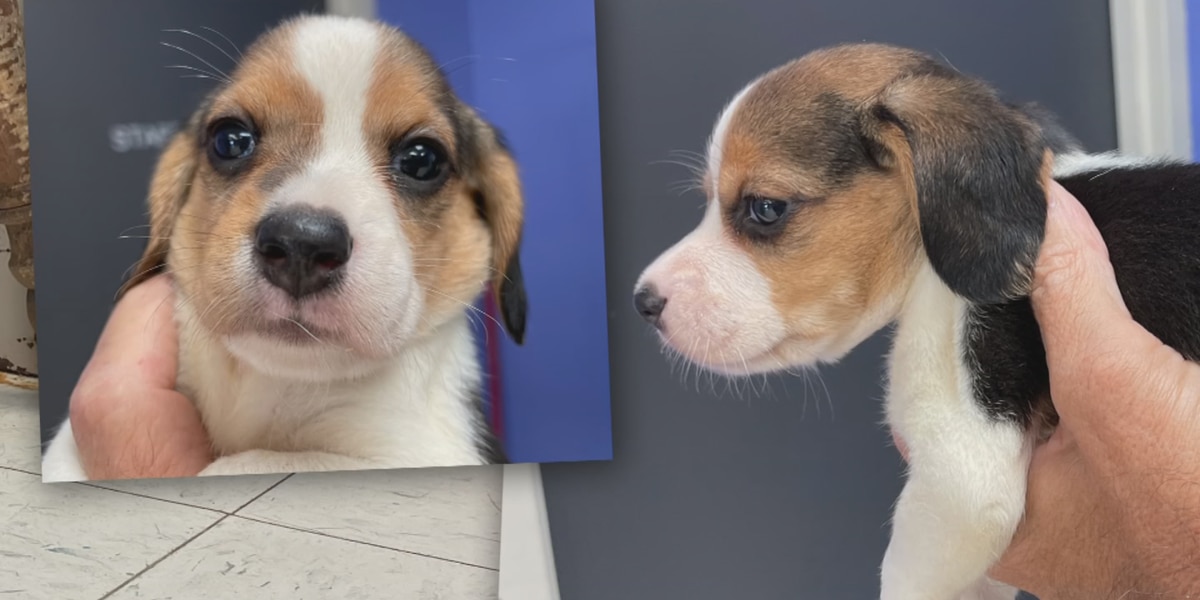- September 7, 2022
- No Comment
- 5 minutes read
Rehoming 4,000 beagles is a nationwide challenge. Kansas and Missouri are helping. – KCTV 5

KANSAS CITY, Kan. (KCTV) – It’s a big task: Placing thousands of beagles removed from a breeding and testing facility in Virginia.
Last month, the U.S. Department of Justice took over the Envigo lab. The lab was used for testing, but also bred the dogs to supply other labs that test on animals.
A lawsuit filed by the DOJ described shocking conditions for the animals. Government inspectors found that the beagles were denied veterinary care for easily treated conditions and were instead killed. They were denied food. Over eight weeks, 25 beagle puppies died from cold exposure. Some dogs suffered injuries when they were attacked by other dogs in overcrowded conditions.
The company denies the allegations but closed. The animals are now being cared for by the Humane Society of the United States while it works to move the dogs out of the lab and, eventually, to loving homes.
The dogs are being moved to organizations across the country. A few even made their way to Kansas and Missouri.
The Southeast Kansas Humane Society has taken in eight beagles — four adults and four puppies. When we visited the shelter, they’d been there about a week. Prior to that, they only knew life in a cage.
“When they first came in, they were petrified,” said Jasmine Kyle, Director of the SEK Humane Society. “They’re getting adjusted with human interaction and know what a toy is.”
The first order of business was naming them.
“None of them had names; they were products,” said Kyle. The dogs were tattooed on their ears with a number. “So, when they entered the front door, we named them because that’s what they deserve. There are two males. Five-year-old Robert and 1-year-old Copper. A female, Nellie, is the oldest in the group at 7. Then Daisy and her pups — Lily, Tulip, Lavender and Rose. All the dogs are receiving veterinary care and learning to socialize.
The placement of the beagles has been particularly challenging because shelters across the country are at capacity. Kyle said SEK Human Society is at capacity for large dogs but was able to take a few of these smaller dogs.
“If it had been Labs, [we] would have had to say, ‘No,’” said Kyle. “There was nowhere to put them.”
The beagles staying at SEK Humane Society are in good physical shape, considering what they’ve been through. They are all being treated for coccidia, which is a common intestinal parasite. They are expected to pass their medical examinations soon. After that, the beagles will be up for adoption.
The shelter has received a lot of attention because of the beagles. When they are ready to move on to their permanent homes, they will post a date and time where those wanting to adopt the puppies can apply. However, Kyle cautions against adopting to be part of a moment.
“Never adopt for a story,” said Kyle. “Please, never adopt for a story.”
Kyle asks “would-be” dog parents to do it for the right reasons and consider other animals for adoption.
“We absolutely understand that everybody loves the kids but most shelters, including ours, are at full capacity,” said Kyle. “Make sure that you’re looking at everybody, not just one.”
The Human Society hopes all the attention being focused on the beagles will be a learning moment about animal testing. Many consumers unknowingly support it when they buy certain products. The Humane Society of the U.S. says large companies such as Johnson & Johnson, L’Oréal and others test on animals. They want consumers to make better decisions when buying products.
We wondered why beagles are the popular breed for testing. People for the Ethical Treatment of Animals (PETA) said it’s because Beagles are small, docile and breed well.
Our investigation also found a connection between that shut-down facility in Virginia and the University of Missouri. In 2016, researchers bought puppies for testing. An article in PubMed reported researchers chemically burned the puppies’ eyes during a seven-week period. The puppies were killed after the experiment ended. MU previously defended the experiment, saying animal research is important and the animals were treated humanely during the testing. The research hoped to benefit animals and people with corneal injuries, including veterans.
A spokesperson for the University of Missouri pointed out that facility was under different ownership at the time and had a clean track record.
Copyright 2022 KCTV. All rights reserved.

